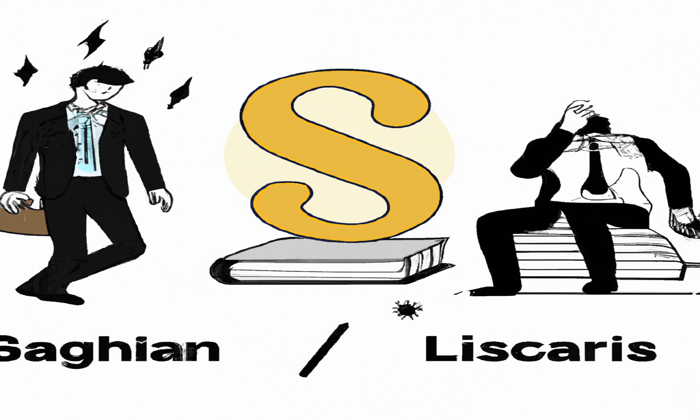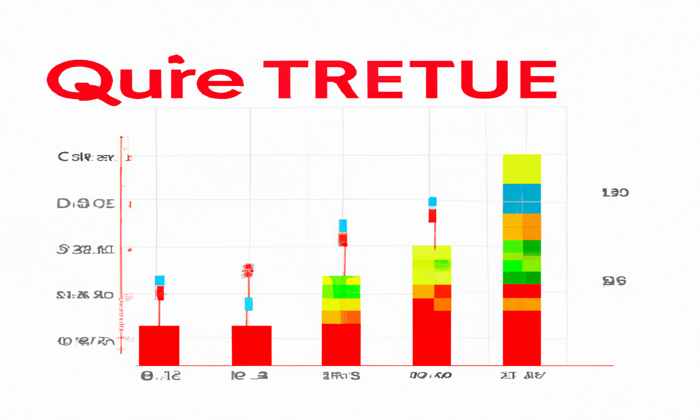The recent M3M3 token crash has sent ripples through the cryptocurrency community, as it unveils a troubling narrative of alleged fraud and significant investor losses. In a bold move, a class-action lawsuit has been filed against Meteora and Kelsier executives, claiming their actions during the token’s launch were misleading and detrimental to ordinary investors. With allegations pointing to a coordinated effort to control a vast majority of the token supply, insiders reportedly profited while leaving public participants in a financial void. This unfolding saga not only raises questions about transparency in the crypto space but also highlights the precarious nature of meme coins tied to celebrity and hype. As the legal proceedings move forward, many are keenly watching how this case could shape the regulatory landscape for future cryptocurrency initiatives.
The fallout from the M3M3 token incident has ignited discussions around wide-scale cryptocurrency manipulation and investor rights. Dubbed by some as a cautionary tale in digital finance, the situation involves allegations of a class-action lawsuit targeting Meteora and Kelsier Labs’ executives. Investors have voiced their concerns about the lack of accountability among those in positions of power, particularly in the wake of supposed orchestrated fraud. By restricting access to tokens and manipulating the trading environment, insiders are accused of exploiting average investors for personal gain. As legal scrutiny intensifies, the implications of this case may have long-lasting effects on how cryptocurrencies are launched and managed in the future.
Understanding the M3M3 Token Crash: A Deep Dive
The M3M3 token crash has been a significant event in the cryptocurrency space, drawing attention from both investors and regulatory bodies. With allegations of orchestrated fraud by Meteora and Kelsier Labs, the situation has raised serious concerns about the transparency and integrity of token launches in the market. According to a class-action lawsuit filed in April 2025, the executives involved misled investors by promoting the token as safe and stable while actually securing majority ownership for themselves. This manipulation of market access and pricing schemes ultimately led to a staggering loss of over $69 million for unsuspecting investors.
As the dust settles on the M3M3 fiasco, it exemplifies the vulnerability of retail investors in the volatile crypto market. The lawsuit contends that insiders employed deceptive tactics to inflate token value, leaving many piecing together the aftermath of their investment losses. Legal experts urge regulators to take a closer look at not only the M3M3 case but also the broader implications for similar tokens marketed in the same fashion. Investors must remain vigilant and informed, particularly in an industry fraught with cases of cryptocurrency fraud, to protect themselves from future losses.
The Class-Action Lawsuit Against Meteora and Kelsier Labs
A class-action lawsuit has been initiated against Meteora and Kelsier Labs, exposing a dark side of how meme coins can operate under a façade of legitimacy. The plaintiffs argue that executives misused their positions to promote the M3M3 token while consciously obscuring vital information about the launch and insider holdings. This deception, they claim, is akin to a classic pump-and-dump scheme, where few profit at the expense of many. As more details emerge, it becomes apparent that the supposed assurances of a fair launch were, in reality, a well-calibrated effort to capitalize on unsuspecting investors.
The legal proceedings highlight the growing frustration among investors who feel betrayed by the very people they trusted. As stories of investor losses spread across the crypto community, the push for accountability intensifies. Not only are investors seeking reparations, but they are also advocating for stakeholder protections within the rapidly evolving landscape of cryptocurrency offerings. The outcome of this lawsuit could set a precedent for future regulations and ethical standards in the issuance of cryptocurrency, especially those that are marketed similarly to $M3M3.
Meteora Executives: Accountability for Their Actions
The actions of Meteora executives, including CEO Benjamin Chow and key players from Kelsier Labs, are under scrutiny as part of the ongoing class-action lawsuit. Allegations contend that these individuals engaged in deceitful practices to maintain control over the M3M3 token supply while simultaneously marketing it as a transparent investment opportunity. This dual strategy not only betrayed investor trust but also exposed the underlying vulnerabilities in the current regulatory framework that governs cryptocurrencies and their launches.
As more evidence is unveiled, the legal team representing the plaintiffs is focused on ensuring that accountability is enforced against those who orchestrated the M3M3 token crash. Investors are looking for justice not only for the financial losses incurred but also a halt to practices that endanger the integrity of the cryptocurrency market. The expectation is that real consequences will deter future fraud and promote greater accountability among cryptocurrency executives.
Investor Losses and the Need for Regulation
Investor losses stemming from the M3M3 token scandal underscore a pressing need for stricter regulatory measures within the cryptocurrency domain. As traditional financial systems grapple with the complexities of digital assets, the apparent lack of oversight allows fraudulent activities to proliferate unchecked. With significant amounts of money at risk, especially in cases like this involving various token launches, there is a call for regulatory bodies to step in and enforce robust safeguards that protect investors from similar scams.
The demand for regulation is further emphasized by the continual emergence of new tokens that promise high returns while lurking beneath them could be manipulative tactics. Investors are advocating for clearer definitions of what constitutes a security in the world of cryptocurrency and are pushing for new laws that hold creators accountable. Effective regulation may not only prevent future investor losses but also help stabilize the cryptocurrency market overall, paving the way for healthier growth in the long term.
The Role of Kelsier Labs in the M3M3 Controversy
Kelsier Labs, a venture firm associated with the M3M3 token, plays a significant role in the controversy surrounding its launch. As part of the class-action lawsuit, Kelsier executives are being scrutinized for their involvement in the alleged fraudulent practices that misled investors and manipulated market conditions. With accusations of insider trading arising, the partnership between Kelsier and Meteora raises questions about the ethical responsibilities of venture firms in the burgeoning cryptocurrency landscape.
The Kelsier relationship to the M3M3 token ultimately suggests a broader implication for how venture capital interacts with crypto startups. As investors demand answers about their losses, it is critical for Kelsier Labs to clarify their role and actions throughout the token’s lifecycle. Transparency will be key in rebuilding trust, not just with those directly impacted by the M3M3 crash but also with the wider investor community who seeks assurance against a repeat of such events.
The Impact of the M3M3 Token on Future Crypto Offerings
The fallout from the M3M3 token crash is likely to have lasting implications for future cryptocurrency offerings. As the class-action lawsuit unfolds, it serves as a pivotal case that could influence how tokens are marketed and launched in the future. Potential classifications of stake-based tokens as securities may lead to stricter regulations and transparent practices, providing investors with a more secure environment.
Moreover, the ripple effects of this lawsuit could promote more ethics-focused discussions within the cryptocurrency space. For future projects, ensuring that there is a greater level of transparency and accountability may become a standard practice, ultimately creating a healthier investment landscape. As awareness grows, it’s imperative that both investors and developers prioritize integrity to foster long-term trust and stability in the market.
Changing the Narrative: From Crisis to Recovery
In the wake of the M3M3 token disaster, there is a pressing need for a narrative shift in the cryptocurrency world—from crisis management to structured recovery. The ongoing class-action lawsuit is not just about seeking compensation for investor losses; it also represents an opportunity to examine systemic flaws that have plagued the industry. Stakeholders must collaborate to strategize and implement solutions that help reshape public perception and restore faith in cryptocurrency as a viable investment.
Rebuilding trust will involve tangible changes, including improved communication strategies from token creators and transparent reporting practices about their business models and tokenomics. The lessons learned from the M3M3 crash can catalyze more responsible launching methodologies that prioritize investor protection and create an environment conducive to healthy innovation. As the industry evolves, establishing robust frameworks for accountability will be critical in ensuring future sustainability.
Learning from the LIBRA Token Scandal
The M3M3 token crash bears resemblance to the prior LIBRA token scandal, which serves as a cautionary tale for the cryptocurrency market. Both incidents highlight the potential for insider manipulation and the severe consequences of unethical practices within the cryptocurrency sphere. With significant financial repercussions for investors, such as those witnessed in the M3M3 crash, experiences from the LIBRA debacle can inform future regulatory frameworks aimed at preventing similar occurrences.
As the connection between M3M3 and LIBRA continues to unfold, advocates for investor rights are urging regulators to learn from past mistakes to help create a safer trading environment. It is imperative that the crypto community recognizes these patterns of wrongdoing and works towards a more secure landscape. By understanding the dynamics at play in both the M3M3 and LIBRA scenarios, stakeholders can better guard against risks and push for integrity in token launches, thereby fostering trust and resilience in the market.
The Future of Stake-Based Meme Tokens and Investor Protections
The future of stake-based meme tokens, such as M3M3, hinges on a transformative shift towards regulatory oversight and robust investor protections. The ongoing demands for classifying these tokens as securities underscore the necessity for reform in how they are marketed and launched. By instituting clear guidelines, regulators can create a more trustworthy framework that discourages fraudulent activities and protects investors, ensuring their interests are safeguarded in this volatile market.
As stakeholders in the cryptocurrency space, including regulators, investors, and developers, embark on the journey towards reform, the lessons from the M3M3 crash can shape a more secure future. There is a collective hope that through transparency, accountability, and compliance with regulatory frameworks, stake-based meme tokens can evolve into credible investment avenues. For the sake of all participants in the cryptocurrency ecosystem, the objective remains to build a landscape that fosters innovation while prioritizing the protection of investors.
Frequently Asked Questions
What is the M3M3 token crash case about?
The M3M3 token crash case involves a class-action lawsuit against Meteora, led by its CEO Benjamin Chow, and Kelsier Labs, alleging that they orchestrated a fraudulent launch of the M3M3 token. This alleged scheme misled investors and resulted in over $69 million in losses, as insiders reportedly manipulated token prices and restricted access to public buyers.
How did the M3M3 token crash impact investors?
Investors were significantly impacted by the M3M3 token crash, with a reported $69 million in losses. After the M3M3 token’s launch on December 4, 2023, the value collapsed within days following actions by insiders who offloaded their holdings, leaving retail investors who bought into the hype with substantial financial losses.
Who are the key defendants in the M3M3 token crash lawsuit?
The key defendants in the M3M3 token crash lawsuit include Benjamin Chow, CEO of Meteora, and executives from Kelsier Labs: Hayden, Gideon, and Charles Thomas Davis. They are accused of misleading investors regarding the token’s launch and manipulating its price for profit.
What allegations are made against Meteora and Kelsier Labs in the M3M3 token crash lawsuit?
The allegations against Meteora and Kelsier Labs in the M3M3 token crash lawsuit include orchestrating a fraudulent launch, manipulating token pricing, and creating a deceptive narrative around the M3M3 token being a sustainable investment. The lawsuit claims they misled investors about the transparency and stability of the token.
What measures are being requested in the M3M3 token crash lawsuit?
The plaintiffs in the M3M3 token crash lawsuit are requesting that the court appoint a receiver to oversee Meteora’s operations and protect remaining assets. They also seek to have stake-based meme tokens like $M3M3 classified as securities to enhance investor protections.
How is the M3M3 token crash related to previous cryptocurrency fraud cases?
The M3M3 token crash is closely related to previous cryptocurrency fraud cases, particularly the LIBRA token scandal, where insiders were accused of manipulating prices and cashing out at their peak. The same executives linked to the LIBRA case are involved in the M3M3 token launch, raising concerns about repeat fraudulent practices.
What has been the response of the executives involved in the M3M3 token crash?
Following the M3M3 token crash allegations, Benjamin Chow has resigned from his role at Meteora. The executives involved have not publicly responded to the lawsuit’s claims, but they are under scrutiny for their previous associations with alleged fraudulent activities in the cryptocurrency market.
What can investors learn from the M3M3 token crash?
Investors can learn the importance of due diligence and skepticism regarding new cryptocurrency launches like the M3M3 token. The alleged fraud underscores the need to verify the integrity of projects and the identities of their executives to avoid being misled by manipulated market dynamics.
| Key Points | Details |
|---|---|
| Class-action lawsuit | Lawyers filed on behalf of investors against Meteora and Kelsier executives. |
| Misleading launch allegations | Executives accused of deceptive practices surrounding the $M3M3 token launch. |
| Token supply manipulation | Insiders held 95% of the token supply, restricting public access during launch. |
| Investor losses | Plaintiffs claim damages exceeding $69 million due to price manipulation. |
| Price crash timing | Token value collapsed days after launch following insider sell-offs. |
| Request for court action | Investors seek receiver over Meteora and classification of tokens as securities. |
| Previous scandals | Meteora and Kelsier linked to the LIBRA token crash impacting investor trust. |
Summary
The recent M3M3 token crash has led to a significant class-action lawsuit against Meteora and Kelsier executives, where they are accused of orchestrating a fraudulent launch that caused substantial financial losses to investors. This lawsuit highlights the critical issues of transparency and regulatory oversight in the rapidly evolving world of cryptocurrency, particularly concerning token launches. Investors are now seeking legal recourse, and the outcome could reshape how future token offerings are regulated.
The recent M3M3 token crash has sent shockwaves through the cryptocurrency community, sparking a class-action lawsuit against Meteora and Kelsier executives. Allegations suggest that the poorly orchestrated launch of the M3M3 token misled investors severely, leading to staggering investor losses amounting to over $69 million. According to the lawsuit filed on April 21 in the US District Court for the Southern District of New York, Meteora’s CEO Benjamin Chow and his associates manipulated the token’s price, enriching themselves at the expense of unsuspecting investors. Insiders allegedly controlled up to 95% of the token supply, creating an illusion of demand while robotically inflating its value. As the dust settles, the fallout from this alleged cryptocurrency fraud raises critical questions about the ethics of token launches and investor protections within the industry.
In the wake of the disastrous M3M3 token launch, significant legal actions are unfolding, targeting the companies and individuals behind this failing venture. The emerging class-action claim against Meteora and its top brass highlights concerns over transparency and accountability in cryptocurrency markets. By questioning the legitimacy of the M3M3 token’s introduction, plaintiffs argue that a broader issue of investor deception must be addressed, echoing sentiments from past incidents like the LIBRA token collapse. With investors being blindsided once again, the repercussions of mismanaged launches and the potential for regulatory changes could dramatically alter the landscape for stakeholders in the crypto space. As this class-action lawsuit progresses, it may set vital precedents for how such digital assets are regulated and handled in the future.














Leave a Reply